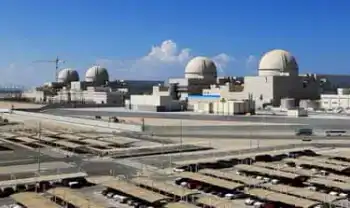Ontario seeks comment on law to close coal plants
TORONTO, ONTARIO - Ontario has drafted a regulation to close its coal-fired plants by New Year's Eve 2014.
Premier Dalton McGuinty promised that Ontario would be bound by law to close its coal plants by 2014 to reduce greenhouse gas emissions.
With a regulation that dictates the closures, people now have 30 days to submit their thoughts and suggestions, including what can be done to convert the plants into more environmentally friendly facilities.
The regulation means any subsequent government will have to change the law if it wants to keep the plants open.
Dave Martin of Greenpeace says the regulation is a disappointment because it allows the plants to stay open until the end of 2014.
He says the province could start phasing out coal much earlier and leave only a few plants open until the deadline.
Related News

P.E.I. government exploring ways for communities to generate their own electricity
CHARLOTTETOWN - The P.E.I. government is taking steps to review energy legislation and explore new options when it comes to generating power across Island communities.
Energy Minister Steven Myers said one of those options will be identifying ways for Island communities to generate their own energy.
He said the move would provide energy independence, create jobs and economic development, and save the communities on their energy bills.
But the move will require sweeping legislative changes, that may include the merging of the Electric Power Act and the Renewable Energy Act.
Myers said creating energy independence should ensure a steady supply of electricity while…




